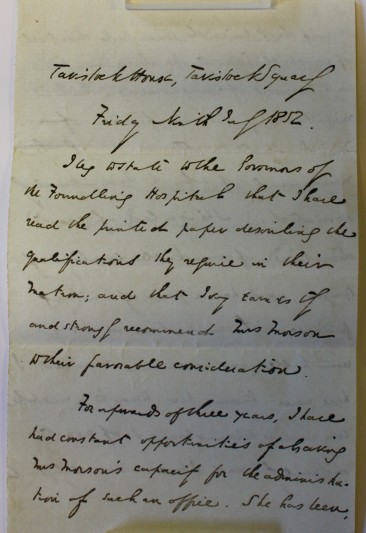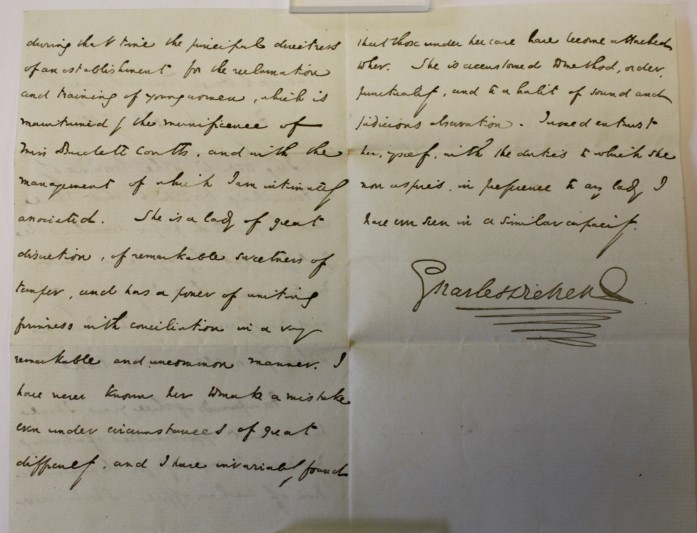The letter is a testimonial of Georgiana Morson, a matron at Urania Cottage, the home for 'fallen women' that Dickens established with the wealthy philanthropist Angela Burdett-Coutts. It is in support of her application for a position at the Foundling Hospital, and as such, speaks to the relationship between the writer, the Foundling Hospital and Urania Cottage.
A keen supporter of the Foundling Hospital, Dickens' sympathy for the plight of women in the 19th century who found themselves unable to care for a child born outside marriage informed the establishment of Urania Cottage. He opposed the assumption that the downward path of the 'fallen woman' was inevitable and irreversible, and instead put his faith in the possibility of reform. An important part of his approach at Urania Cottage was 'dealing gently' with the women, as he reminds Miss Coutts: 'The design is simply, as you and I agreed, to appeal to them by means of affectionate kindness and trustfulness... These unfortunate creatures are to be tempted to virtue.' His testimonial for the kindly Georgiana Morson is evidence of the importance he placed on this reforming spirit: 'I have invariably found that those under her care become attached to her.'

